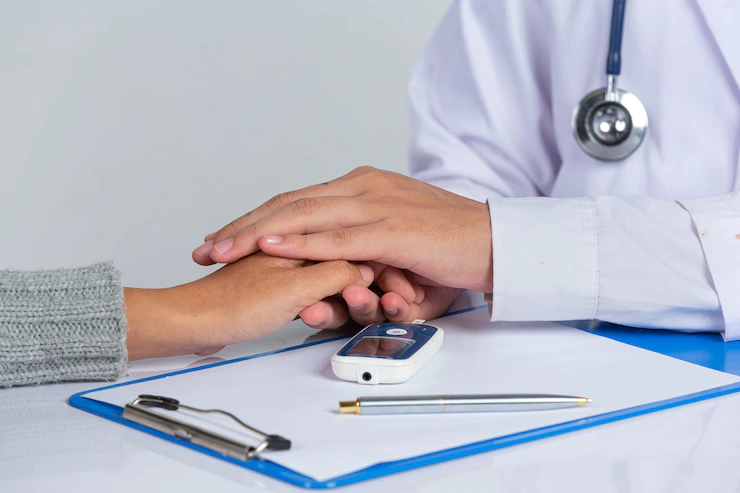Unusual Symptoms of Diabetes



In recent years, there has been an increased risk of diabetes worldwide. With a steep rise in the number of people suffering from diabetes, the need for diabetes awareness is extremely essential. In the UK, more than 4.9 million suffer from diabetes and the numbers will likely increase in the next couple of years. The long-term effects of diabetes on your health can certainly not be ignored. A decline in the ever in the ever-increasing numbers demands a lifestyle and habit change, along with early diagnosis and better access to knowledge regarding diabetes and its implications.
Diabetes may be best described as a chronic metabolic disorder characterized by hyperglycemia, i.e., an increase in blood sugar levels. A sedentary lifestyle coupled with the excessive consumption of fast foods has affected people's health globally, resulting in many chronic disorders. People suffering from diabetes are at increased damage to their vital organs. Diabetes has the potential to significantly affect your heart, kidneys, eyes, and blood vessels.
Diabetes may be broadly classified as:
Type 1 Diabetes usually affects children and adolescents. Type 1 diabetes is characterized by autoimmune pancreatic beta-cell destruction in which your body attacks the pancreatic cells that secrete insulin. In this type of diabetes, your body can no longer produce insulin on its own, resulting in insulin insufficiency. Persons suffering from type 1 diabetes may need to take insulin injections daily.
This type of diabetes accounts for 90% of diabetic cases in the UK. Insulin resistance, inadequate production, and improper pancreatic insulin function are responsible for type 2 diabetes. Generally affecting adults, lifestyle and dietary changes can help reduce the increased blood sugar in type 2 diabetes. However, long-term diabetic patients may require oral medications. Insulin injections may be required in some cases.
This is a rare type of diabetes and has a hereditary pattern in its occurrence. A single gene mutation is held responsible for MODY. If you have MODY, there is always a 50% chance of the diabetic gene being inherited by your child.
As the term implies, gestational diabetes affects women during pregnancy. It is usually diagnosed during the second or third trimester of pregnancy. Although the high blood sugar levels may become normal after pregnancy, both the mother and the child are at risk of acquiring type 2 diabetes later on in life.
Neonatal diabetes affects children within the age of 6 months. It is a very rare type of diabetes and has affected less than 100 neonates in the UK. It is different from type 1 Diabetes as it’s not autoimmune in nature and is also classified in a different category because of the age group it affects, as type 1 diabetes does not affect children under 6 months of age.
Diabetes Mellitus may further be categorized as diabetes due to a disease of the pancreas, such as cystic fibrosis or drug-induced diabetes, such as steroid-induced diabetes.
Your doctor will diagnose your type of Diabetes based on your symptoms, clinical and family history, a diabetes blood test, and other blood tests that would also evaluate the specific cause of diabetes.

Some of the common symptoms of Diabetes include:
Increased thirst
Frequent urination
Unexplained weight loss
Tiredness
Delayed wound healing
Diabetes is known to affect the body's metabolism and has a widespread effect on your overall health. While you may be familiar with the commonly occurring symptoms of diabetes, some of the unusual symptoms associated with diabetes include the following:
The increase in blood sugar levels affects the passage of white blood cells through your bloodstream. This weakens your immune system, increasing your chance of acquiring infection. Fungal infections of the skin and vagina are often a complaint among women suffering from diabetes. You may also be prone to acquiring bladder and urinary tract infections.
Increased blood sugar levels result in frequent urination, which may cause dehydration and light-headedness. Consumption of oral hypoglycemic medications for diabetes may also make you feel dizzy. It is, therefore, vital to stay hydrated and eat your meals on time.
Some specific skin pigmentations have been observed in persons suffering from diabetes. Acanthosis nigricans is one such skin disorder that is more often a sign of a pre-diabetic condition. It may manifest in the form of dark, velvety patches on skin folds of the neck, armpits, and groin. Increased skin cell production and reduced blood flow to the extremities are responsible for the increased skin rashes and pigmentations among persons with diabetes.
Some other skin conditions associated with Diabetes include:
Blisters
Poorly controlled diabetes may result in blisters on the fingers, toes, forearms, hands, and feet. These types of blisters that affect diabetics are usually painless.
Eruptive Xanthomatosis
Small bumps may appear on the hands, arms, feet, and buttocks. They more often affect persons having type 1 diabetes and high cholesterol. Xanthomatic bumps are usually firm, yellow in colour, and have a pea-like appearance.
Skin Tags
Skin tags have been a common complaint among the young and old worldwide. It is often a prediabetic sign affecting persons with insulin resistance. The skin around the eyes, the neck, and the armpits are the most affected by skin tags.
Lichen Planus
This is another immune-mediated skin disorder associated with diabetes. Affecting the skin of wrists, forearms, and ankles, it forms flat bumps that are purplish in colour. It also affects the mucous membranes of the lips, mouth, and vagina resulting in whitish, lacy patterns on the mucous membranes. Being inflammatory in nature, lichen planus is known to have a more aggressive prognosis among diabetic persons.
Digital Sclerosis
It manifests as thick, swollen, and waxy skin of the fingers. Affecting persons with type 1 diabetes, digital sclerosis causes stiff joints affecting their mobility. Uncontrolled type 2 diabetes may also be associated with a rare skin disorder termed scleroderma diabeticorum. It results in the hardening and thickening of the skin of the neck and back.
Vitiligo
Vitiligo results in discoloured patches on the skin around the mouth, nostrils, and eyes. It may also affect the skin of the abdomen and chest. Although it affects persons with both type 1 and type 2 diabetes, persons with type 1 diabetes are more commonly affected. Diabetes tends to affect the pigment-producing skin cells, which results in light or hypopigmented patches on the skin.
Although commonly occurring, the association between inflamed gums and diabetes is easily missed. Periodontitis is the inflammation of the gums that results in redness and swelling of the gums. In severe cases, periodontitis may also result in mobile teeth. You may also be at risk of losing your teeth. The relationship between diabetes and periodontitis is a two-way one. Increased diabetes may negatively affect your gums. Poor gum health may also put you at risk of increased blood sugar levels.
Increased blood sugar levels affect the blood vessels in your eyes and result in fluid changes. Blurry vision, swelling in the eye and poor vision are some unusual symptoms associated with diabetes mellitus.
Diabetes weakens your immune system and you may frequently acquire bacterial and fungal infections. Frequent fungal or bacterial infections on the skin, nails, and hair follicles can cause discomfort for many diabetic persons. Recurrent vaginal yeast infections and oral candidiasis have also been common among persons having poorly controlled diabetes.
Diabetes may also hamper your sexual health to some extent. Erectile dysfunction is a symptom associated with type 2 diabetes among men. High blood sugar may affect the nerve and blood vessels that supply the penis, resulting in erectile dysfunction.
Uncontrolled Diabetes may result in serious complications affecting your vital organs. Cardiovascular diseases and neuropathy manifesting in tingling and numbing of the extremities due to nerve damage, retinopathy, kidney diseases, and hearing loss are some of the severe complications of diabetes.
There are a few tests that help to diagnose diabetes. They include:
Random plasma glucose test: It can be performed at any time.
Fasting plasma glucose test: You will need to fast for a minimum of 8 hours before the test to get accurate results.
Haemoglobin A1C test (HbA1C test): You may be recommended to undergo this test for the following reasons:
If you have already been diagnosed with diabetes
If you are at risk of having diabetes
If you have one or more symptoms of diabetes

Based on your symptoms, history, and blood sugar levels. Your doctor will prescribe the right medication for you. Depending on the severity and your type of diabetes, your GP will prescribe you oral medications or insulin injections. On the advice of your doctor, you may self-test with the help of a home glucose monitor system to keep a check on your diabetes. Lifestyle changes, regular exercise, and diet modifications are extremely important in the management of most cases of diabetes.
Read more at Welzo to learn more about the difference between type 1 and type 2 diabetes and the causes, signs and treatment of diabetes.








Plus get the inside scoop on our latest content and updates in our monthly newsletter.